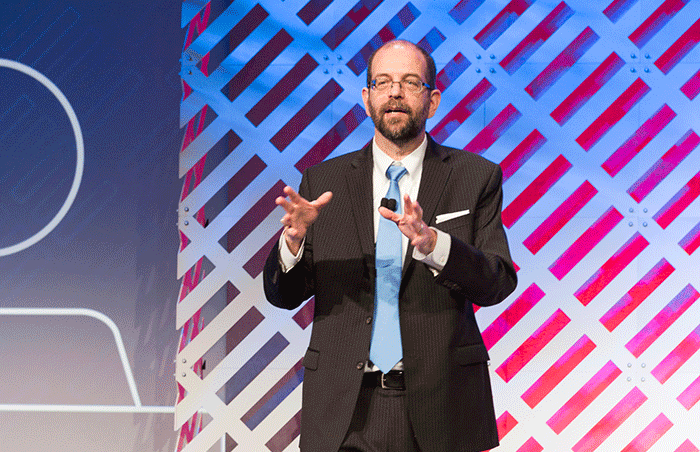We've seen the movies, we've read the books, we're reading the articles all over the place--the fact is, robots are coming and they are poised to overwhelm the human population in the next 20 years. In my last article, I wrote about the future of intelligence; that according to two powerhouses of technology, Elon Musk and Nick Bostrom, if humans do not create a neural layer to hook into machines, we'll be completely taken over.
This is an important issue that continues to gain momentum as the race to build these machines are shifting from fringe companies to household names such as Toyota. Yes--TOYOTA . . . the car manufacturer.
Back in January, Gill Pratt, the head of Toyota's Research Institute, gave a talk introducing the expansion that the car manufacturer is making into artificial intelligence. Pratt made the claim that the difference between manufacturing cars and manufacturing robots are really the same thing. Moreover, if people love their cars, how much more will they love their robots--the corollary of course being that Toyota plans to make some pretty adorable robots.
In fact, according to Bloomberg, Toyota is "forging ahead in robotics as Google, the technology giant and a challenger in the race to develop driverless cars, shows signs of pulling back. Google’s parent Alphabet Inc. has put Boston Dynamics up for sale after concluding it isn’t likely to produce a marketable product within the next few years . . . . Toyota Research Institute is among the potential acquirers, a person familiar with the matter said."
In a related article, ITPro claims robots will outnumber humans by the year 2020. This may sound implausible, but when you have massive multinational companies like Toyota building manufacturing plants for robots, and then you begin to think about the potential for self-replicating machines, it's not a strain on the imagination to see how this projection could be true.
Many see robots as the panacea for human service, health care, and geriatrics, which thus warrants their mass production. The Toyota push for robot manufacturing, according to Bloomberg, is partially being driven by Japanese Prime Minister Shinzo Abe for a “robot revolution” in Japan, with a a target to more than quadruple the nation’s robotics industry sales to 2.4 trillion yen ($23 billion) by 2020.
Let's face it, there will always be justification for artificial intelligence. The issue is, however, that robots will grow in advanced intelligence. They will continue to get smarter, and once they have the power to self-replicate, they will be able to produce indefinitely. This may seem like a cute idea when you think of a team of robot assistants at your home bringing you cold ice tea on a hot summer day; but what about self-replicating military weapons? Eric Schmidt of Google recently gave a talk at the Cannes Lions Festival of Creativity about the tech giant's development of AI technology, during which he sloughed off the question of the dangers to humans:
"To be clear, we’re not talking about consciousness, we’re not talking about souls, we’re not talking about independent creativity," said Schmidt. “We’ll make make sure that people know how to turn this stuff off should we get to that point,” the exec said, though he wasn’t clear on how.
That said, Schmidt did include the importance of AI an military power, which seems to call into question his previous point:
"There are a large number of issues of automation from a military context, and Google has taken a very strong position in not being involved in that. But remember that for every offensive scenario you can think of, you can also think of a defensive scenario that’s just as intelligent," he said. "And remember, these systems learn by training, so the more examples they have, the more they can protect you."
The more we see robot manufacturing on the rise--and you can imagine how Toyota's shift to robotics will cause a trend across the auto industry--the more we'll see further pressure forced down upon human intelligence. As well, we'll begin to see further threats of nuclear attack and even human subjugation. It's a critical issue. But even though Schmidt, which seems tongue in cheek, diminishes Google's involvement in military, as the world heats up politically, the prediction of a mass produced population of advanced AI seems ever more plausible.


No comments:
Post a Comment